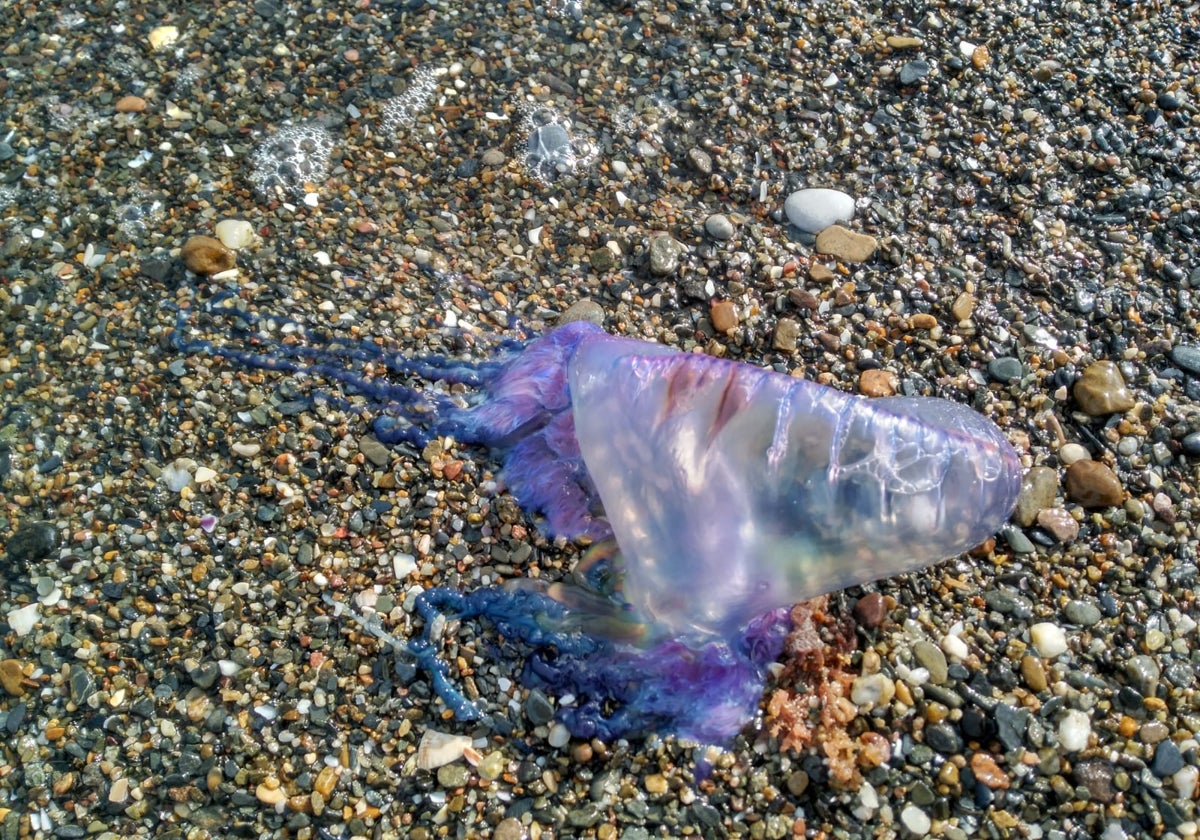

Sections
Highlight

Portuguese Caravel, more commonly known as the Portuguese man o' war have been spotted on the Costa del Sol's beaches. This animal, which is in fact a species of siphonophore, a group of animals that are closely related to jellyfish, is considered to be among the most dangerous of its kind. It leaves a nasty sting if its tentacles come into contact with the skin. They should be avoided, even if they are dead.
This has been confirmed by members of the Aula del Mar Mediterráneo foundation, who have recently detected specimens of Physalia physalis in the Mediterranean Sea off the Costa del Sol in Marbella (Puerto Banús), Fuengirola and Benalmádena. They have been dragged to the Malaga coast from the Atlantic by the recent storms that has been hitting the province since the beginning of March.
"The Portuguese Caravel is not native to the Mediterranean, but to the Atlantic Ocean, where it inhabits temperate and tropical waters. However, in certain climatic conditions it can be dragged through the Strait of Gibraltar and reach the Mediterranean coasts," explained sources from this institution.
According to the US National Ocean Service website, it gets its name as it resembles "an 18th-century Portuguese warship under full sail, the man o’ war is recognized by its balloon-like float, which may be blue, violet, or pink". It goes on to say that "lurking below the float are long strands of tentacles and polyps that grow to an average of 10 meters and may extend by as much as 30 meters".
The presence of this species on beaches causes concern due to its potent venom, which is found in its long tentacles and can cause intense pain, allergic reactions and, in some cases, medical complications. Although its sting is not fatal, it can cause significant discomfort and require medical assistance, warns the Aula del Mar.
The monitoring of the Portuguese man o' war is essential to know its distribution and to foresee in which areas it could appear in the coming days, especially before Easter, which will bring with it (if the weather is good) an increase in the number of visitors to the Costa del Sol. "Having up-to-date information will allow us to alert the coastal surveillance services and take preventive measures".
For this reason, the Aula del Mar Foundation has activated a monitoring plan through the environmental volunteer platform Red de Protección Marina and the Creamar groups of Malaga, Mijas, Rincón de la Victoria and Nerja. In addition, it has appealed to beach users to take precautions, but also to collaborate with information on the locations of specimens.
Marine biologist Jesús Bellido should be informed via email: jesus.bellido@auladelmarmed.org in the event of finding a Portuguese man o' war, with the location (name of the beach or coordinates), date of the sighting and photos.
Publicidad
Publicidad
Publicidad
Publicidad
Esta funcionalidad es exclusiva para registrados.
Reporta un error en esta noticia

Debido a un error no hemos podido dar de alta tu suscripción.
Por favor, ponte en contacto con Atención al Cliente.

¡Bienvenido a SURINENGLISH!

Tu suscripción con Google se ha realizado correctamente, pero ya tenías otra suscripción activa en SURINENGLISH.
Déjanos tus datos y nos pondremos en contacto contigo para analizar tu caso

¡Tu suscripción con Google se ha realizado correctamente!
La compra se ha asociado al siguiente email
Comentar es una ventaja exclusiva para registrados
¿Ya eres registrado?
Inicia sesiónNecesitas ser suscriptor para poder votar.